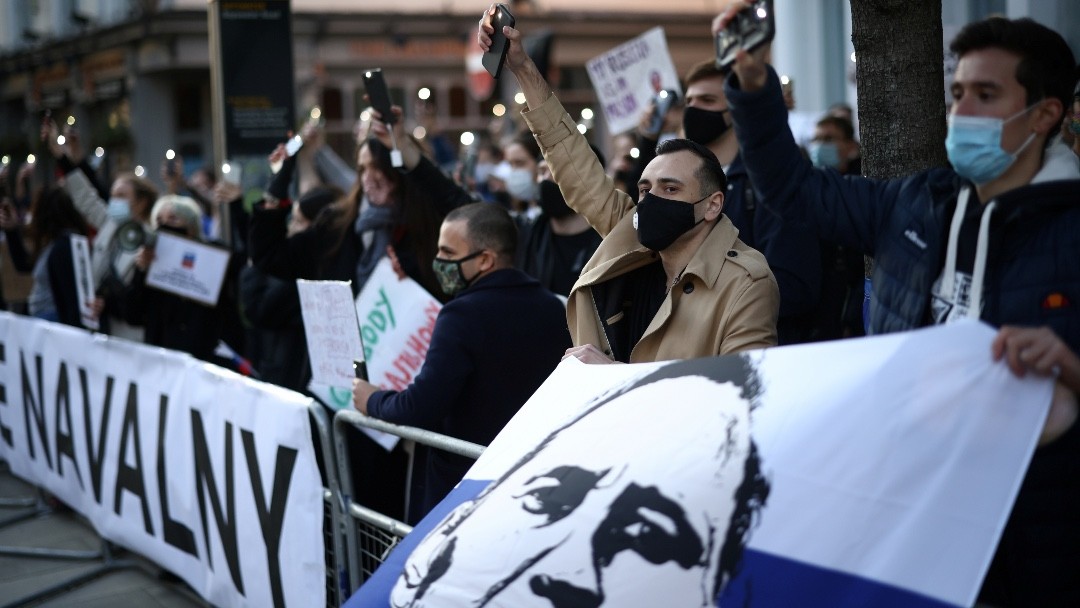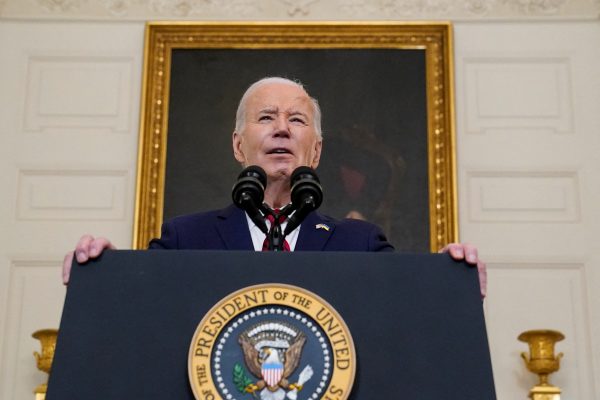Russia’s Federal Security Service (FSB) drew up a list of topics last month that reporters cannot discuss, on pain of designation as a “foreign agent.” This includes information on the military (probably even including hazing incidents) and the effectiveness of Russian forces’ hardware, but also nearly all information about the work of Roscosmos, the country’s troubled space agency.
Despite Vladimir Putin’s autocratic reputation (and behavior), Russian news reporters have made merry over the years by sourcing stories from probiv, literally “looking up” information from leaked databases. The online investigation website Bellingcat even used probiv to identify the GRU assassins who launched a chemical warfare attack in the English town of Salisbury and the identity of Alexei Navalny’s would-be assassins.
Earlier this year the authorities took steps to crack down on online marketplaces selling data from probiv, the by-product of Russia’s burgeoning digital surveillance, lax data security practices, and endemic corruption. For an increasingly paranoid and authoritarian government, it is clearly awkward to have such material accessible to the public.
It’s not just investigative journalists making use of these services. A recent report in Novaya Gazeta, for instance, traced a spying operation that relied on probiv — and targeted the son-in-law of Sergey Lavrov, Russia’s minister of foreign affairs — to people potentially connected to the Wagner Group, a private military company tied to Yevgeny Prigozhin, the regime ally known colloquially as Putin’s Chef. This may be awkward. But the fact that anyone without authorization – that is, outside of the elite – can access these data has come to be regarded as a major security threat.
Until they restore control over data, however, the authorities have turned lax data security into a weapon. The personal information of opposition supporters has repeatedly been leaked into the public domain. In 2019, during protests ahead of Moscow City Council elections a database containing details on 3,000 “Navalny supporters” (some of whom were simply protesters) was published on an anonymous Telegram channel (suggesting that they were being monitored.) This year, two more such data leaks have occurred.
In April hackers breached the email database of the “Free Navalny” website where Alexei Navalny’s team was collecting sign-ups for upcoming protests. The database was then enriched with information that the Meduzanews website found may have originated from “Sprut”, a database containing an extensive array of personal information, which is accessible to the Presidential Administration’s Scientific Research Computing Center. Many people then received threatening emails and some were fired from their jobs. By the time news broke — in July — that thousands of email addresses had leaked from Navalny’s Smart Voting platform in Moscow, Navalny’s organizations were all but hammered to pieces.
The above reflects an important shift in Russian politics, the consequence of years that saw the institutions of representative democracy hollowed out: the marriage of a growing “securocracy”, in which an increasing number of policy fields are viewed through the lens of security; and political legitimacy based on technocratic prowess. Both rely on complete control of key resources from the center, including data
So while the Russian government greatly enhanced data collection and utilization in the past two years, reliable datasets are increasingly off-limits to the public. Data on covid-19 cases and death figures, for example, have repeatedly been exposed as grossly underreported, even as various government institutions seem to possess actual data. Further examples abound, from air pollution to economic growth.
At the same time, the government has embarked on an ambitious (and so far, halting) standardization of data across various government databases and Gosuslugi, an e-government portal.
In an interview with the RBC news portal, published in this month, Alexey Kudrin, the head of Russia’s Audit Chamber — and finance minister in the first decade of the Putin era — acknowledged that public access to data was increasingly restricted, but added that “for experts and for deputies [data] is accessible.” This essentially creates a “data aristocracy,” where access to information is doled out centrally, on the understanding that it is not going to be used “disloyally.”
Surveys conducted in the past years have suggested that one of the things most Russians agree on is that they want a more effective state. Without the opportunity to achieve deeper reform, this restricted access to information makes the government the only institution able to conduct an in-depth analysis of social and economic processes, in turn allowing it to pick which problem to solve, or which benchmark to tweak.
The approach is not entirely new, of course. One of Vladimir Putin’s party tricks in his annual televised call-in is memorizing and recalling a large amount of granular data, often on the most mundane subjects, before solving a handpicked issue by berating officials live on TV. The government’s new Coordination Center, which focuses on incident management based on data analysis looks like a bigger version of this Potemkin issue-resolution mechanism.
All this increasingly depends on control of communication. Communication networks, online or offline, where people can share their experiences, become aware of each other, and organize relatively freely, challenge a government’s monopoly to decide which issues to prioritize and which to hide. Repeated efforts to deanonymize online activity and attacks on regional opposition offices show very clearly the government’s ambitions to destroy this infrastructure on- and offline.
Nowhere is this aspiration for complete control more visible – and fragile – than in electoral data. Next month when Russians head to the polls, only the authorities are likely to know the real level of support for Putin’s United Russia party. The presence of independent monitors will be severely limited – OSCE observers will not be present at all – camera feeds from polling stations will not be accessible to the public, and three-day voting will give the authorities lots of time to twist the results in the ruling party’s favor.
However, the attempt at total control — over data, communication flows, and processes — increases the risks of mistakes too. It may take just one misjudgment, one clumsily administered electoral district, one small rift in the elite to whom information is accessible, to expose the insecurities and the incompetence behind the technocratic façade. And just like the rigged tales of presidential success from Putin’s call-in show, there is an appreciative audience for the reality of Russian governance.




